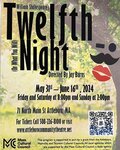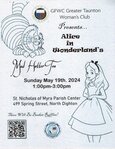Books to Beat the Winter Blahs
Mid-winter always makes me glad that we start the year with January and February. Let’s get the worst out of the way first so we can move on to something better. But please, in a Leap Year, can’t we put the extra day at the end of June or September, where it might be appreciated? February doesn’t need to be one day longer.
It’s a good time of year to make like a bear and hibernate, at least in a modified way. If you’re looking for some offbeat indoor amusement, the most witty and clever book I’ve read lately is “100 Places to See After You Die” by Jeopardy host Ken Jennings. Yes, you read that title right. Jennings calls it “A Travel Guide to the Afterlife”, humorously exploring how this weighty subject has been viewed by various cultures, societies, and religions over the centuries, not to mention in current film, TV shows and pop songs.
When I hear the phrase “places to see before you die” I get annoyed. I always picture some poor soul finally reaching his lifelong goal at the top of a mountain and then collapsing on the spot. I got a chuckle out of Jennings’ title, though you wouldn’t want to visit most of these places. The jacket blurb slyly refers to the book as “exploring to-die-for destinations.” Now that’s another phrase I hate, especially when used to describe food.
Jennings’ book is full of fascinating notes and wide-ranging knowledge, as you might expect from a Jeopardy expert. There’s a lot more than Dante’s Inferno here, such as details about Egyptians death rituals, which always seem so strange and creepy to modern people. And those massive pyramids! Certainly, no Pharoah ever said, “you can’t take it with you”.
Surprisingly, in a number of cases and places throughout history, there doesn’t seem to be too much to celebrate in the Great Beyond. Think of the ancient Greeks with their gloomy idea of Hades, full of shadows in eternal gloom (sort of like a foggy winter dusk in New England, only permanent).
Saving the best (or worst) for last, Jennings takes on the Hellscapes of Hieronymus Bosch, the 15th century Dutch artist whose grotesque paintings of Hell will be familiar to anyone who’s taken an art history class. Jennings aptly refers to Bosch’s famously perverse three-panel masterpiece “The Garden of Earthly Delights” as “a long strange triptych”.
Eternal damnation has been ghoulishly described in many different ways over the millennia, with each scenario worse than the last. Keep in mind that this was long, long before horror movies. One thing’s for sure, human beings have been trying to scare the hell out of each other since the dawn of civilization.
If pondering the downsides of the Afterlife is too much to contemplate, even in a funny way, there’s another book I really enjoyed, “What You are Looking for Is in the Library” by Michiko Aoyama. This brief Japanese novel is a series of short stories about how this or that person finds what they are looking for at their local library, with the help of a stout and somewhat mysterious middle-aged librarian.
It turns out that what the various characters, young or old, male or female, are looking for is not just information, but connection with other people and so, a way to turn their lives around, which they find at the library’s community center. This little book is charming and upbeat without being overly sentimental, plus it gives you an interesting insight into daily life in Japan. Of course, I found this novel and Jennings’ new book at the library.
Another phrase I dislike describes those who enjoy reading as “always having their nose in a book”, as if you had an eyeball at the end of your nose! It turns out that readers, especially those who enjoy novels, have found one enjoyable and effective way to keep their minds active.
According to neurologist Richard Restak, who studies and writes about memory and aging, “Reading novels is a cognitive-reserve building move.” He believes that they demand even more in terms of cognitive function than non-fiction. With a novel, you have to follow the plot (sometimes more than one plot), keep all the characters straight, and use your imagination. If you’re one of those people who prefer reading novels to doing puzzles and word games, this is good news indeed.

















Comments
No comments on this item Please log in to comment by clicking here